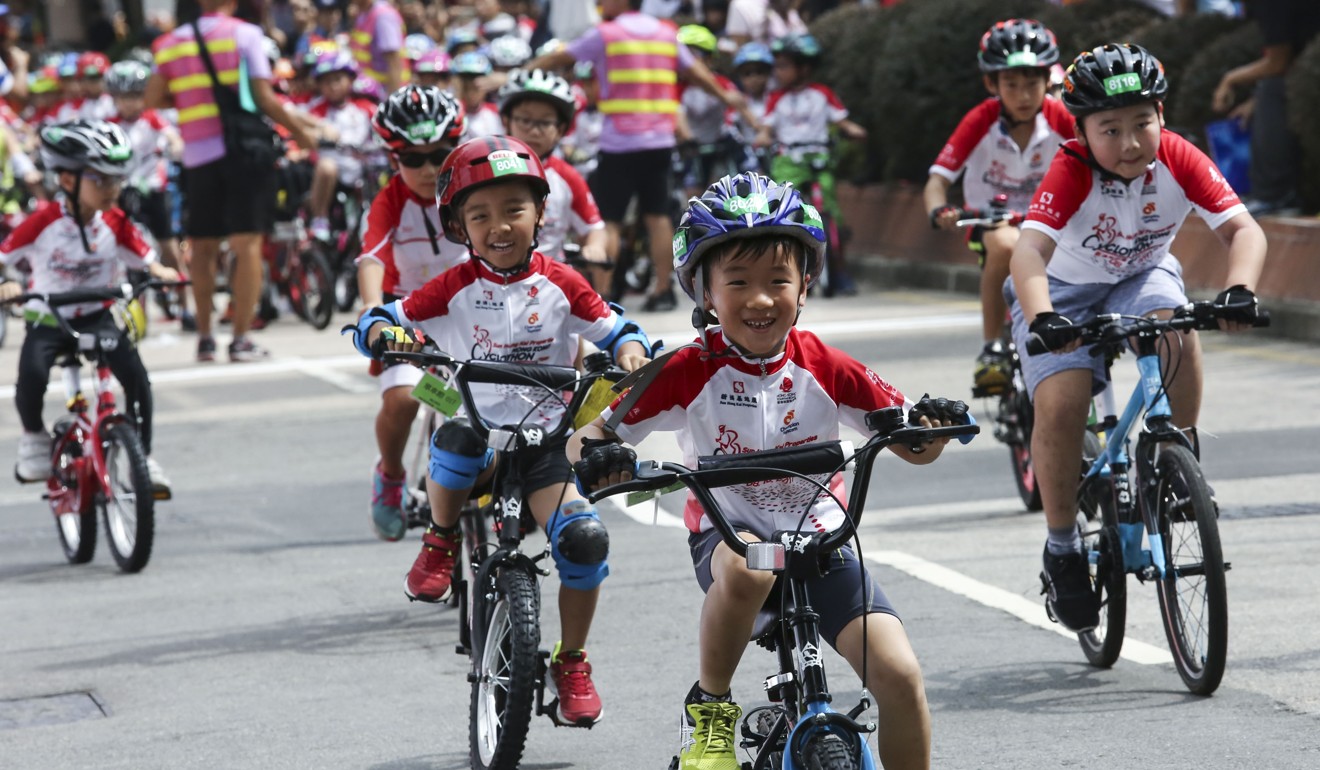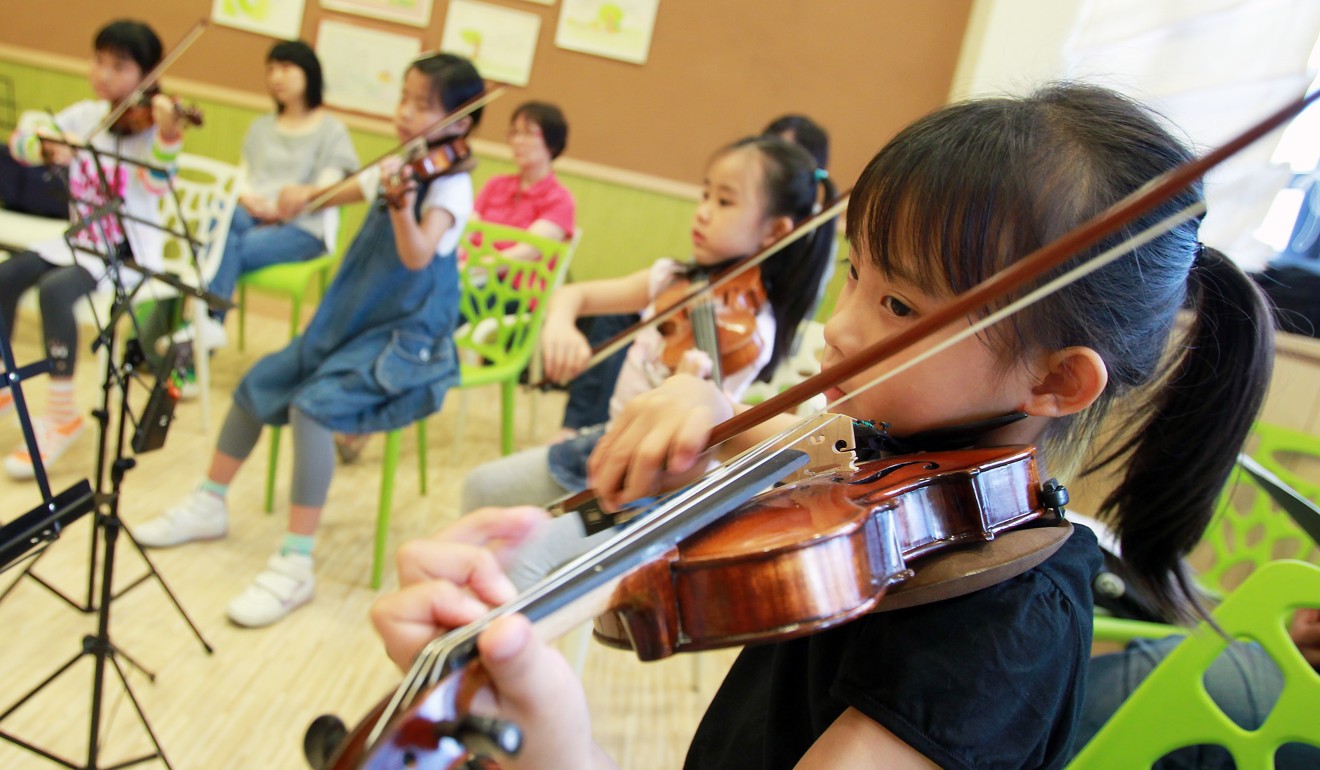
Parents should encourage, not pressure preschoolers into hobbies, Hong Kong educators say
Experts advise parents to learn what interests tots at kindergarten, and then introduce activities to suit their personalities, dexterity and attention spans

Many parents might wonder if their busy preschool children need a hobby. Experienced educators say they do.
Children are naturally inquisitive about subjects ranging from music, sports, arts and crafts, to Egyptian mummies or Hong Kong trams. Research also shows that a hobby can also help preschool children to develop emotionally, mentally and physically. Such pastimes can also encourage preschoolers to learn more of the world they live in; develop a healthy imagination, and nurture a sense of creativity. Hobbies also help youngsters acquire useful soft skills for life.
And parents can help their preschool children to discover potential hobbies, by exposing them to a broad spectrum of experiences, according to Dr Chan Wai-ling, assistant professor at the Education University of Hong Kong’s (EdUHK) department of early childhood.
Besides watching and listening to their children and seeing what interests and excites them at home, parents can also talk to their tinies’ teachers to find out about the things that excite them at school, advises Chan, who is also a supervisor at the EdUHK Early Childhood Learning Centre.
However, hobbies should also be fun and children should not feel under pressure to achieve particular goals in them, she explains.
“Helping preschoolers to discover a hobby is a good chance for parents to get creative and allow their children to try new things,” Chan says.
And when parents introduce their children to activities that could become a hobby, they should also ensure they are suitable for the child's age and abilities, she adds. “The idea should be to let the child enjoy the activity, so it makes them feel good,” Chan says, citing how academic extra-curricular activities rarely count as a hobby or a pastime.

Parents also need to set a balance between supporting their children’s formal academic activities and non-academic activities, Dr Chan says. An enjoyable hobby helps a child form their personal identity and enhance their confidence, she adds.
If children are forced to participate in the same hobbies as their parents and they don’t enjoy the experience, the concept of having a hobby becomes meaningless
Such personality and emotional developments can also help children to explore their intellectual curiosity and make new friends, which can in turn help them to assimilate with their classmates when they transition to primary school, Chan says.
Parents’ own hobbies can have a positive influence on their children, for example, in sharing the pleasure of exercise and being outdoors if parents enjoy pursuits such as hiking, cycling and sports activities. However, Chan warns parents to be wary about imposing their own hobbies on their children.
“If children are forced to participate in the same hobbies as their parents and they don’t enjoy the experience, the concept of having a hobby becomes meaningless,” Chan says. Children’s hobby interests might also change as they develop, the educator adds, so parents should resist pressuring their young to continue with an activity they no longer have a passion for.
Parents should also consider “the type of activity and the character of their child before helping them to choose a hobby and the best way for them to enjoy their pastimes”, Chan says.
For example, while learning to swim, some children respond better to one-to-one tutoring, while others are more motivated to learn through peer involvement in group lessons, the educator explains.
She also advises parents to steer their children away from hobbies that involve extensive use of smartphones and computers.
Learning to play a musical instrument at an early age has been shown to contribute to a child’s development, but many Hong Kong parents often make their children play the piano or violin to get their children accepted at a particular kindergarten or school.
However, Dr Margaret Lau Wing-chi, senior lecturer at the EdUHK department of early childhood education says science has shown that when children learn to play music there is a strong correlation between language development, literacy, numeracy aptitude, social skills, teamwork, self-discipline and self-confidence.
“Learning to play an instrument can have a positive impact on young children that can stay with them throughout their lives,” says Lau whose research is mainly focused on early childhood music and child development.

Expert opinions vary on the ideal age a child should start to formally learn to play a musical instrument, but Dr Lau says sometime from the age of four to five is ideal, depending on the youngster’s physical development and personality.
The reason, she explains, is that children require a level of fine motor movements and physical development to play the piano, violin and guitar, three of the most common instruments played by children in Hong Kong.
“If a child tries to play an instrument without dexterity, it can be frustrating,” Lau says. She adds that even when young children are introduced to musical instruments, the initial experience should be about developing a comfortable relationship with music.
The general rule for preschool children is to expose, but don't impose; and encourage, but don't pressure children to play an instrument they are not ready for, or don’t enjoy playing, Lau says. Music lessons for preschoolers should also be short but frequent, as the attention span of four- and five-year-olds is between 15 and 20 minutes, the educator adds.
Meanwhile, parents can introduce their preschoolers to music much earlier through informal activities such as playing musical games, watching musicals together and singing or playing an instrument for a child. Parents can also introduce their children to different types of musical instruments and the sounds they make by watching YouTube videos together.
“Playing an instrument and enjoying making music can help a child become a well-rounded student,” Lau says. “But this is only one part of the equation: playing an instrument should also be fun.”